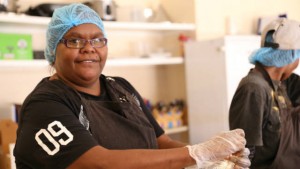Home » Commentary » Opinion » Know goal before setting Indigenous procurement targets
· Ideas@TheCentre
 The furore that erupted in the past week over the federal government’s Indigenous Procurement Policy (IPP) could have been prevented if the government had been clearer about the objectives they were hoping to achieve. Is the policy designed to support majority Indigenous business ownership and control, or increase the number of Indigenous employees working in businesses?
The furore that erupted in the past week over the federal government’s Indigenous Procurement Policy (IPP) could have been prevented if the government had been clearer about the objectives they were hoping to achieve. Is the policy designed to support majority Indigenous business ownership and control, or increase the number of Indigenous employees working in businesses?
Minister for Indigenous Affairs, Nigel Scullion, responded to criticism of the IPP in a letter to The Australian, arguing that: “…the policy is a small business policy” not an employment policy.
However, if the statistics in The Australian are anything to go by, the policy is clearly providing greater benefits to larger, more established Indigenous businesses, than to small and medium sized ones.
Moreover, while Scullion claims the IPP is not an employment policy, he also uses the argument that Indigenous businesses are “100 times more likely to employ first Australians than non-Indigenous businesses” as an example of the indirect merits of the policy.
Some of the unintended consequences of the IPP were apparent over a year ago, when I first wrote about ‘black cladding’ businesses — a practice whereby non-Indigenous businesses partner with Indigenous ones to win federal contracts, but the Indigenous business partner has no real say or control in the running of the company.
One of the reasons black cladding is occurring is because of a shortage in the supply and capacity of Indigenous businesses to meet the demands of the government’s procurement policy.
However, instead of increasing oversight of the procurement policy to ensure the legitimacy of the businesses partnerships, or amending the policy to provide incentives for non-Indigenous business partners to support building the capabilities and capacity of their Indigenous business partners, the government moved the 3% target forward from 2020 to now, compounding the supply problem.
If the government is serious about supporting the Indigenous business sector, it needs to ensure the original intent of the IPP is upheld and that the contracts are going to legitimate Indigenous businesses — or at the very least being used to develop the capacity of the sector through knowledge sharing and skill development.
Know goal before setting Indigenous procurement targets